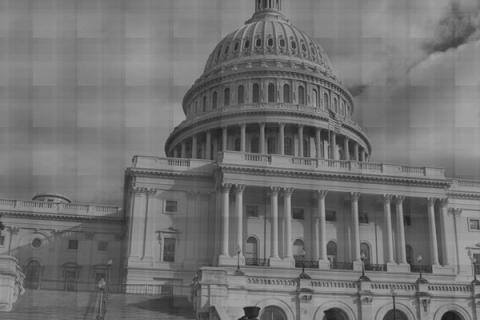The War on Drugs is a costly and controversial operation of the US federal government. A look into its origins and history is necessary to understand its present scope and its future direction.
The National War on Drugs has gone on since 1914 when the very first national drug law was passed by Congress. That law was the Harrison Narcotics Tax Act which required those firms that manufactured, distributed, or imported narcotics to register with the Internal Revenue Service and pay a tax on the goods they produced and sold. If this was the final law on drugs than it wouldn't be so bad, but sadly this was just a stepping stone to more intrusive and oppressive laws in the name of the War on Drugs.
The next step in the War on Drugs was the 1920 National Prohibition Act, which went further than levying a tax on a substance, and actually prohibited outright. This law was enacted to eliminate the problem of drunkenness that was afflicting the nation. Instead of letting Americans make decisions about their own bodies, the government decided to make those decisions for them. In some ways, however, the solution was worse than the problem. One major unintended consequence was the growth of a black market in liquor distribution, which gave rise to powerful and violent organized criminals. The Federal government eventually repealed the ban on liquor, but not before creating a more powerful FBI to combat the organized crime problem its own laws caused.
At this point in history, with the failed attempt at prohibition in the country's rear view mirror, you would think that Congress and the public would be wary of any attempt to pass similar laws, but sadly this was not the case. The Federal Government unleashed a mass propaganda program that was headed by Harry J. Anslinger the head of the Federal Bureau of Narcotics who made up "facts" to scare the public into demanding a uniform code of drug enforcement in all states. Originally only 9 states would agree and had laws on the books that made marijuana illegal. So he came up with cleverly deceptive films and posters that showed what this "evil" drug would do to America's children, such films as Reefer Madness or the poster below:
Mr. Anslinger played on people's fears and biases to promote his prohibition of marijuana as you can see from the short clip linked above which features just a few of his racist and false statements used to scare the public. So with the stage set in 1934, the Uniform State Narcotics Act was passed and signed into law. Having already banned liquor, the Federal government now moved to ban another substance-- marijuana-- despite the negative unintended consequences of its previous (and overturned) ban on liquor.
These laws were mere precursors for the eventual laws that came at the start of the 1970s. A whole new organization was created in the 1970s to deal with the increase of narcotics trafficking. This organization created in 1973 is know as the Drug Enforcement Administration or the DEA. This agency was created by Richard Nixon with the signing of Executive Order 11727, and it would come to employ militarized police tactics, such as heavily-armed SWAT raids to serve drug warrants at people's homes. This is the same agency that just last week revealed that it had held a college student in a cell for 5 days handcuffed with no food or water:
http://www.youtube.com/watch?v=nVw-M5YxXo0The DEA is also the same agency that reportedly played a supporting role in the Fast and Furious scandal that is being investigated right now by Congress. Although the War on Drugs is about keeping America's streets and your children safe, those who prosecute it are under investigation for selling powerful weapons to known points of distribution for violent drug criminals.
But why hasn't a criminal drug cartel arisen around the sale of cigarettes and alcohol? Is it because they are less dangerous substances? Is it because it is easier to control them, monitor who sells them, and regulate to whom they can sell these products? If marijuana, heroin, and cocaine were sold in the same fashion as alcohol it would put an end to the violent crime associated with the drug trade, just as it did with the repeal of alcohol prohibition.
Would there still be folks who would abuse these substances? Yes, but there are already people abusing these substances-- as well as alcohol-- today, despite the War on Drugs. The government should not legislate personal decisions for Americans, but only hold them accountable their actions when they harm others. If some is under the influence of a substance and drives his or her car into a building, then he or she should be held responsible for the damage. But history shows that regulating the personal choices of an entire nation of people to mitigate the consequences of those who harm others only increases the overall harm to society while violating individual liberty.


